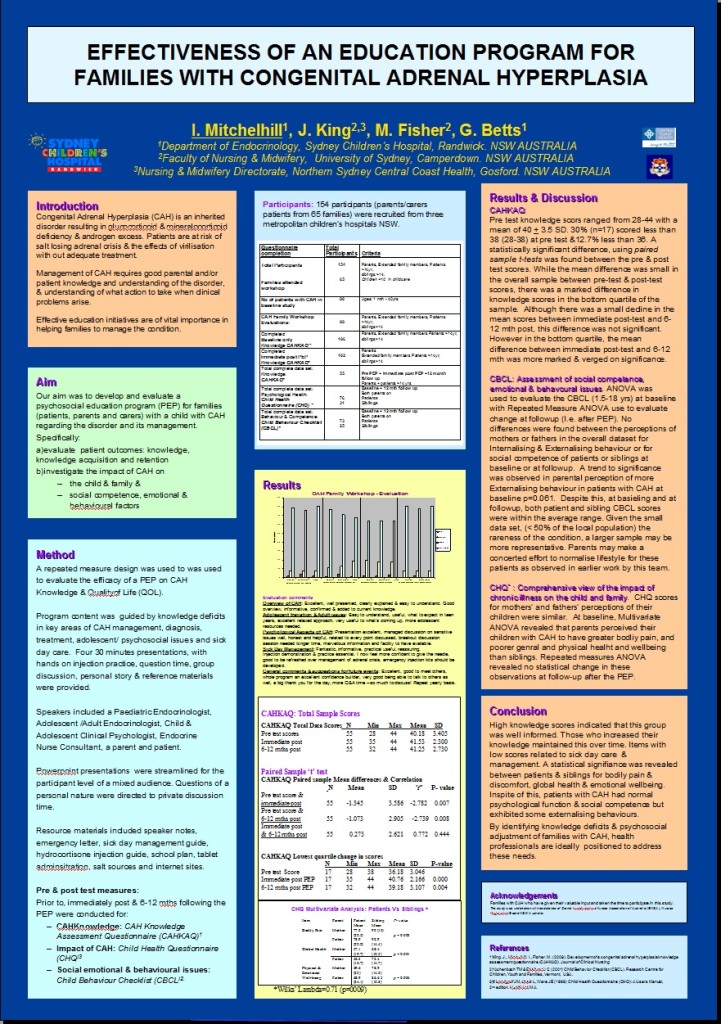Effectiveness of a Psychosocial Education Program for Families with Congenital Adrenal Hyperplasia
Congenital Adrenal Hyperplasia (CAH) is an inherited condition caused by an enzyme deficiency which leads to a potentially life threatening adrenal crisis. Poor compliance and any illness, injury, or major medical procedure can be life threatening. Management is challenging with medical interventions, counselling and timely education essential for this geographically and socially diverse population.
The primary aim of this study was to evaluate a psychosocial education program (PEP) developed to meet the needs of families with a child with CAH, with the additional opportunity of exploring the impact of CAH on the child and family.
Two hundred and two participants (parents/carers/children with CAH and siblings), from 68 families took part in the study. Participants attended a full-day workshop which provided: information about CAH, a practical injection session, group discussions and provision of a resource folder. Data were collected to explore the impact of CAH on the child and family using the Child Behaviour Checklist (CBCL) and the Child Health Questionnaire (CHQ). Sibling data were collected to allow for comparisons of CAH group with siblings and established norms. Evaluation of the psychosocial education program involved baseline and follow-up (immediate, six months and 12 months post education) measures of knowledge using the Congenital Adrenal Hyperplasia Knowledge Assessment Questionnaire (CAHKAQ) and a formal evaluation.
No statistical difference was found for Internalising or Externalising behaviours between children with CAH, siblings and population norms, with Mothers’ and Fathers’ scores for both groups within established population norms. Fathers’ rated children with CAH as having lower social competence than siblings. Fathers’ scores were also significantly lower than Mothers’ scores for children with CAH (compared to siblings and norms), for bodily pain & discomfort, general health, emotional impact on parents (CHQ).
Evaluation of the PEP with the CAHKAQ, showed increased knowledge immediately following the PEP, which was maintained over time. Frequency analysis showed persistent issues with the management in sick day care. The Impact evaluation showed 90% agreement (good – very good) on content, time and usefulness of the program sessions.
In summary, few differences were found between children with CAH and their siblings or the population norms in relation to behaviour, social competence and general health, with the
exception of Fathers’ ratings, in some areas. Further research is needed here. The PEP achieved its major goal of increasing knowledge of CAH, with positive evaluation by families. The workshop has now been incorporated into a DVD that is available to families and health professionals.
Right click here and click “save as” to download a high res copy
